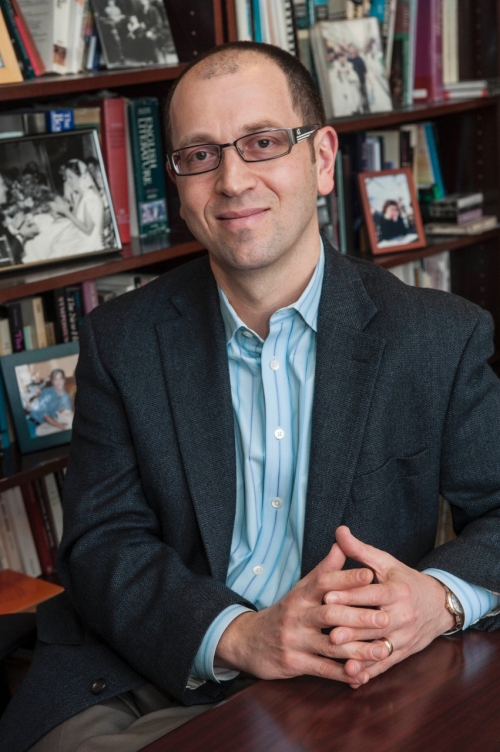Leaving Russia: A Jewish Story—the powerful 2013 memoir by critically acclaimed author Maxim D. Shrayer, Boston College Professor of Russian, English, and Jewish Studies—has been released in a paperback edition.
The first English-language, autobiographical and nonfictional account of growing up Jewish in the former USSR—of refuseniks and the Jewish exodus from Russia—it poignantly conveys the triumphs and humiliations of a Soviet childhood and expresses the dreams and fears of Shrayer’s family, which never lost hope for acceptance and a better life.

“I’m thrilled for Leaving Russia to be gaining a new, wider audience through this revised paperback edition,” Shrayer said. “The story I’ve told in Leaving Russia: A Jewish Story hasn’t lost its relevance today, when the vast majority of ex-Soviet Jews live in North America and Israel, while Russia’s Jewish community continues to dwindle, even though public expressions of antisemitism in Russia seem to be at a historic low. Why were Russian Jews destined to fall in love with Russia? And why did they have to leave their home, their ancestral graves, the culture they had made their own? I invite the readers to find some of the answers in my book.”
Leaving Russia, Shrayer explains, “focuses on growing up Jewish and coming of age in the former Soviet Union in the late 1960s-1980s. At the time the Jewish population of the entire Soviet Union—about 1.8 million in 1970—was one of the largest in the world. The Jewish community in the USSR faced unabashed state-sponsored antisemitism (often disguised as “anti-Zionism”) as well as popular antisemitism of the ‘streetcar’ variety. Jewish children grew up with a sense of dual selfhood, while their parents and grandparents could never shake the memories of Stalin’s genocidal paranoia of the late 1940s-early 1950s.” The current number of Jews in the Russian Federation is only about 180,000, he noted.
Narrated in the tradition of Tolstoy’s confessional trilogy and Nabokov’s autobiography, Leaving Russia: A Jewish Story is a searing account of growing up a Jewish refusenik, of a young poet’s rebellion against totalitarian culture, and Soviet fantasies of the West during the Cold War.
Shrayer’s remembrances are set against a rich backdrop of politics, travel and ethnic conflict on the brink of the Soviet empire’s collapse. His moving story, which offers generous doses of humor and tenderness, counterbalanced with longing and violence, received wide critical acclaim.
The Shrayer family left the Soviet Union in 1987, after waiting nearly nine years. They were among the veteran Jewish refuseniks who, during the dawn of Gorbachev’s policy of glasnost, were granted exit visas to emigrate from the country. Shrayer’s parents, writer David Shrayer-Petrov and translator Emilia Shrayer, had been refusenik activists.
“It was important to tell this story because the Jewish experience in Russia—and especially during the Soviet period—is not fully understood in America,” Shrayer said, “this despite the fact that it’s now difficult to imagine the fabric of our communities without ex-Soviet Jews.”
The above was excerpted from a press release.



